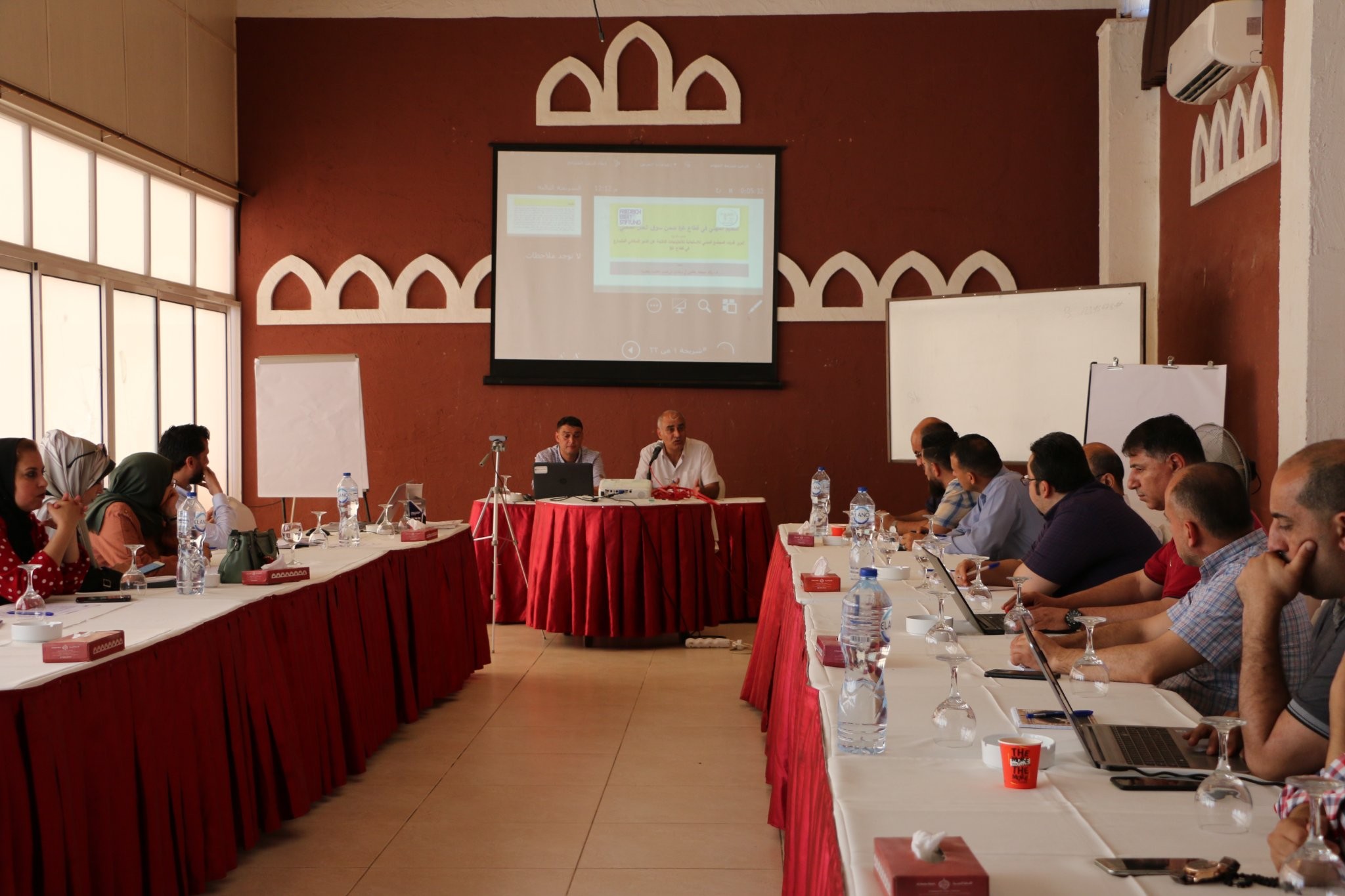Representatives of various civil society organizations in the Gaza Strip emphasized on the need for developing education and vocational training by means of concentrated efforts among all relevant bodies, within a joint national committee.
The representatives' insight came during a workshop, held by PNGO, in Gaza city. In their view, a well-planned vocational training could meet the needs of local market at both the vocational and technical levels.
They also called for re-evaluating and upgrading all related syllabuses and programs in the field of vocational training as well as other sectors of education in the Gaza Strip.
For this purpose, they recommended creating a unified joint committee for all partners of the private sector, local universities, civil society organizations, laborers syndicates and education and vocational training experts.
Dr. Raed Helles, a leading expert in Gaza, presented his own paperwork to the workshop in which he highlighted the need for reinforcing and promoting vocational training in the local community and attempting to change current negative community's outlook to such field of education, rather than the traditional academic education.
Helles's paperwork pointed out several other issues related to vocational training in the Gaza Strip, in relation with local market. His indicators included market challenges, faced by vocational training, across the Gaza Strip.
Director of PNGO in Gaza, Mr. Amjad Shawa, delivered a speech before participants, in which he asserted on what he believed to be increased numbers of labor force elements, compared with low demand for work in Gaza. Shawa made clear that such a gap between the two has caused the Palestinian economy in Gaza not to meet local market needs, especially amidst rapid population growth.
PNGO's director also emphasized on the significance of vocational training, as a main component of labor force in Gaza, in a way that would meet local market needs for now and in the future.
Shawa noted that despite the fact that Gaza Strip faces a heap of problems and challenges, vocational training remains able to meet local market needs. "Therefore, vocational training needs to be developed by all possible means", Shawa believed.
From his part, Programs Director within the German Friedrich-Ebert-Stiftung organization, Dr. Usama Antar, told participants that partnership with PNGOs for the current year, simulates the development of a set of indicators for a better future for the Gaza Strip.
Antar noted that promoting vocational training in the Gaza Strip would meet local market needs and expand educational opportunities, as well as exploit all available resources.
Helles's paper mentioned that economic and political circumstances in the Gaza Strip, over the past two decades, have contributed to higher rates of unemployment, which in turn overloaded the local labor market in Gaza.
According to the same paper, many years of Israel-imposed siege have also contributed to terrible economic conditions, crippled by an internal Palestinian political division. All these factors have made implementing economic developmental plans by consecutive Palestinian governments, difficult.
Helles also emphasized on the significance of education and vocational training, in a sense that both sectors would come up with a new generation of skillful people, who are capable of meeting local market needs.
In order to achieve a sustainable development in the community, Helles added that enabling vocational training generations to get training should be taken into account, and it would make a positive change towards meeting the requirements and needs of the local labor market and to achieve sustainable development to serve future generations.
The expert explained that the most significant challenges, faced by education and vocational training in Gaza's local market are the negative outlook by the local community; mainly preferring academic education to vocational training.
Among those challenges, according to Helles, is insufficient buildings and labs, needed for such a vocational training, in a way that creates shortage in related services or works, such as arts crafts.
He also asserted on what he believed to be the significance of getting the private sector involved in planning for vocational training, based on the private sector's needs within the local market, in addition to promoting culture of vocational training among members of the local community.
Participants, along with Helles, agreed that a specialized committee, representing all possible categories of the local community, is of high importance for the best of programs and syllabuses, related to vocational training.
Helles, from his part, called for preparing some educational materials that would help promote the culture of vocational training in the local community.
Many participants in the workshop had many recommendations and notes to put up, among them were encouraging young generations in Gaza towards vocational training and preparing an entire plan for a possible infrastructure for vocational training including buildings, equipment and raw materials, to be all employed.
Last but not least, all participants called for a balanced relation between vocational training and both the local and private sector's markets, in a way that would guarantee working opportunities that help maintain sustainable economic and social development in the Gaza Strip.




